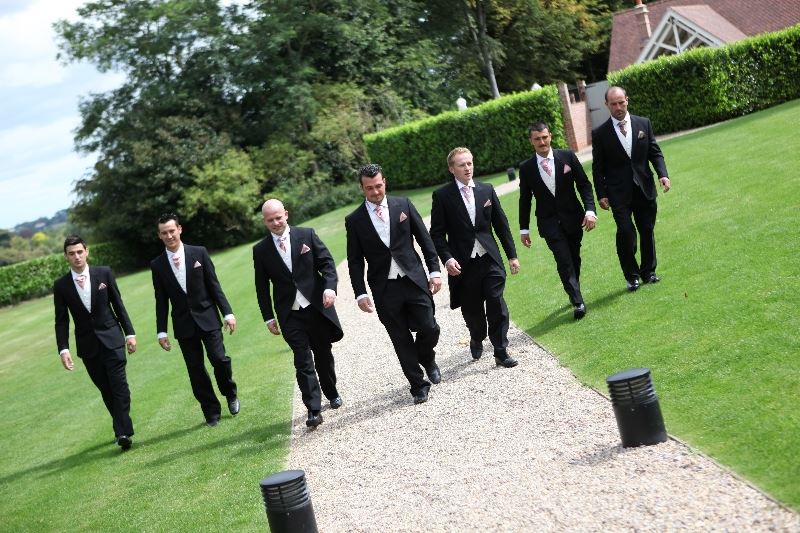Wedding rings are a symbol of love and commitment and are usually worn on the ring finger of the left hand to encircle the “vena amoris”, also known as the vein of love, that ran directly to one’s heart.
Wedding bands are worn every day and as such, should be practical yet beautiful. Long gone are the days when plain 24k gold bands were the go-to choice for most grooms. Thankfully, in this day and time, we have way more options when picking the perfect ring for the groom – perhaps too many! Do we want diamonds? Which material is best for the grooms who work with their hands? Why is there such a big difference in cost? Let’s try to answer all those questions and educate ourselves on the subject of wedding bands!
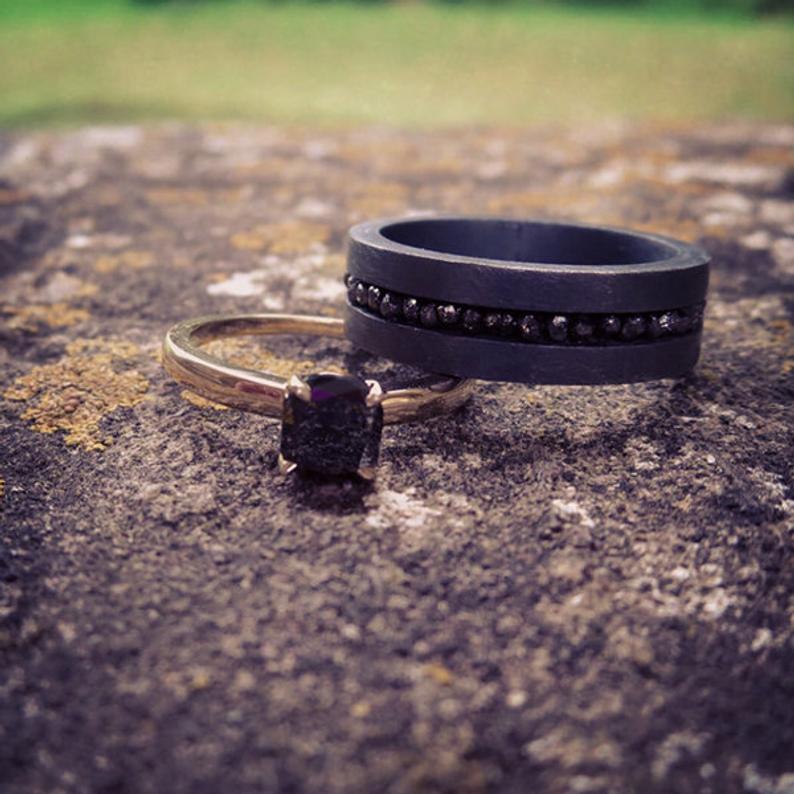
Gold wedding bands
Gold has always been the most popular choice of metal used for making of jewellery, including wedding bands. While it usually comes in the naturally warm, yellow hue that we are familiar with, we can also get white gold and rose-gold when it is mixed with different alloys. Gold is not only traditional and timeless, but it is also dense and soft, making it the most malleable (easily shaped!) pure metal. Some of the benefits of gold that make it such a popular choice are that it does not rust and it is able to retain its value in weight.
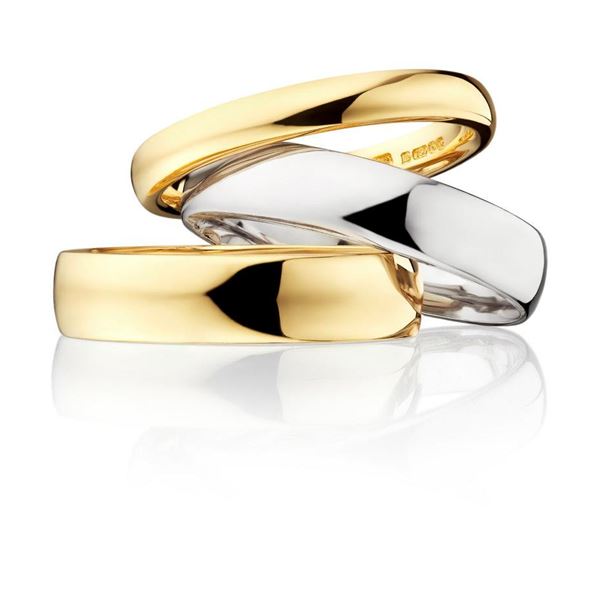
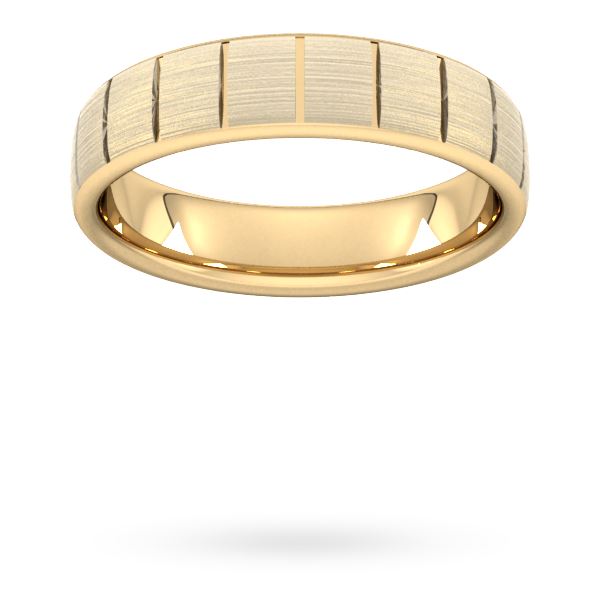
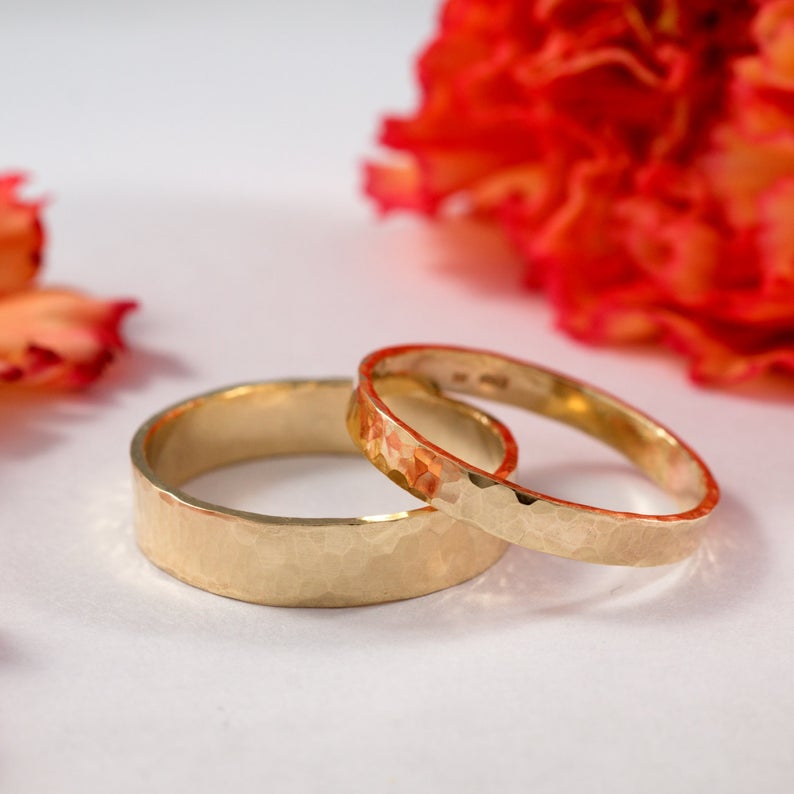
Platinum wedding bands
Platinum is often called the Noble metal, due to its superior ability to withstand corrosion and oxidation. It has become increasingly popular over the years for a number of reasons. Firstly, it is an extremely valuable metal, which means it will retain its value for a long time. Second, the white-silver colour gives it a sophisticated look and it is also durable. It is a naturally white metal that develops a lovely patina over the course of time, and while some may like the look and feel of a beautifully worn band, you can always buff it back to its original shiny appearance. Platinum is preferred by those who like the look of white-gold but are happy to spend more for a premium quality wedding band.
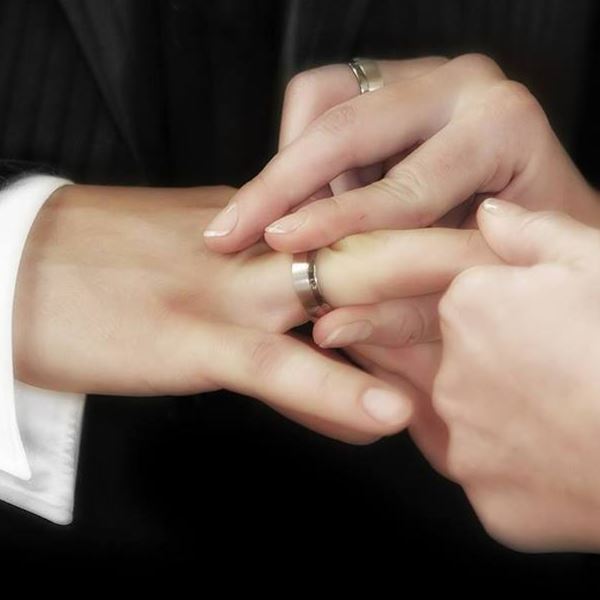
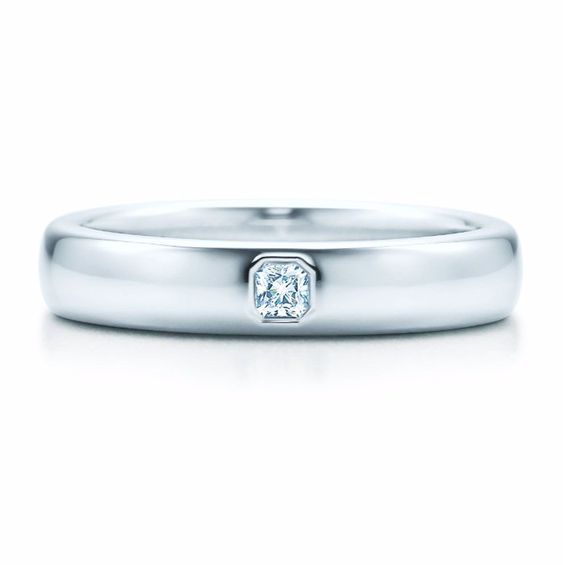
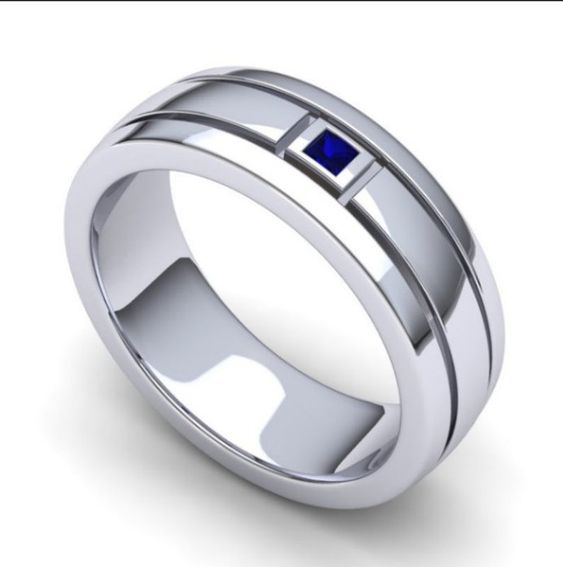
Titanium wedding bands
Titanium is the strongest metal that is also very lightweight and scratch-resistant, which explains why it would make the perfect material to make wedding bands, especially for those who are not used to wearing jewellery as it feels very different from the traditional gold and platinum. The unparalleled durability of this metal makes it so popular with those who work with their hands but want to wear their wedding band on a daily basis. It is also surprisingly low maintenance, only requiring a quick wipe with a jewellery cloth now and again. It creates a modern and unique style that is exactly what many want in their wedding band. Something you do need to take note of when getting a titanium wedding band is that they cannot be resized.
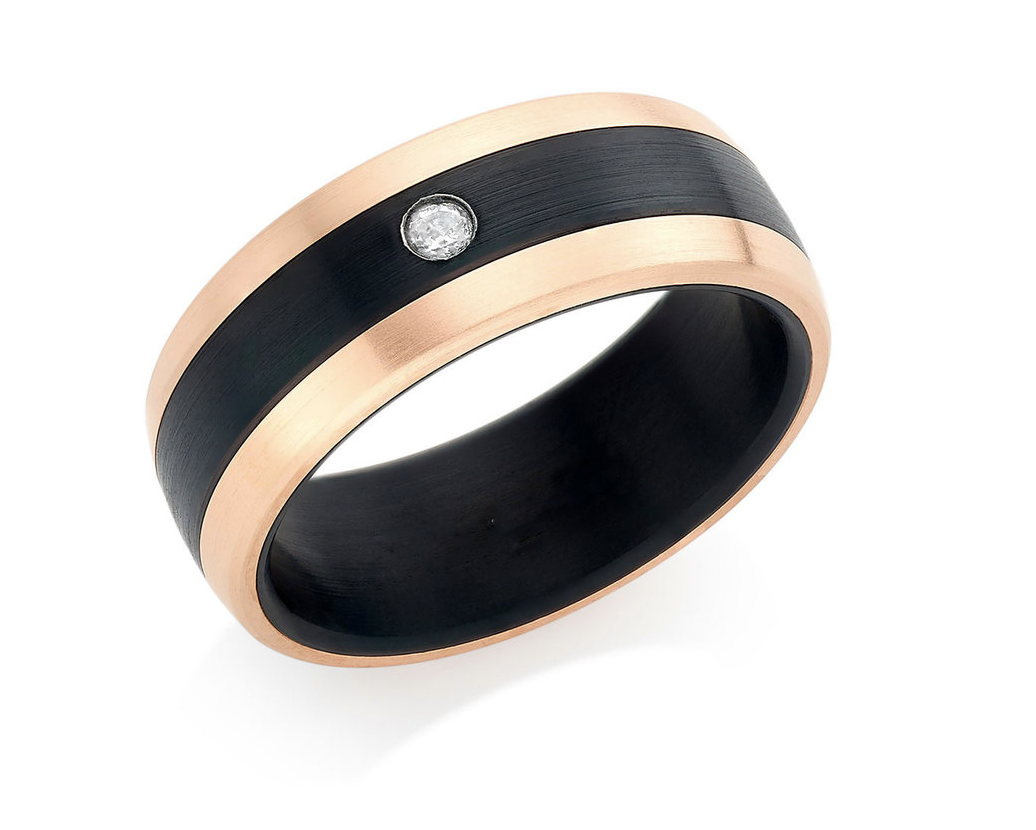
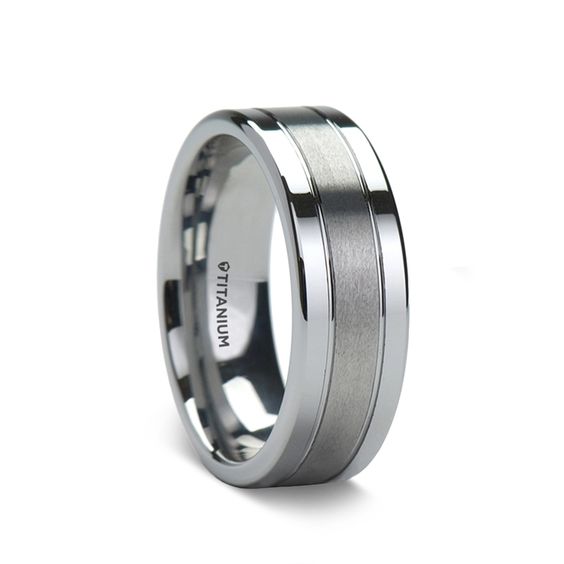
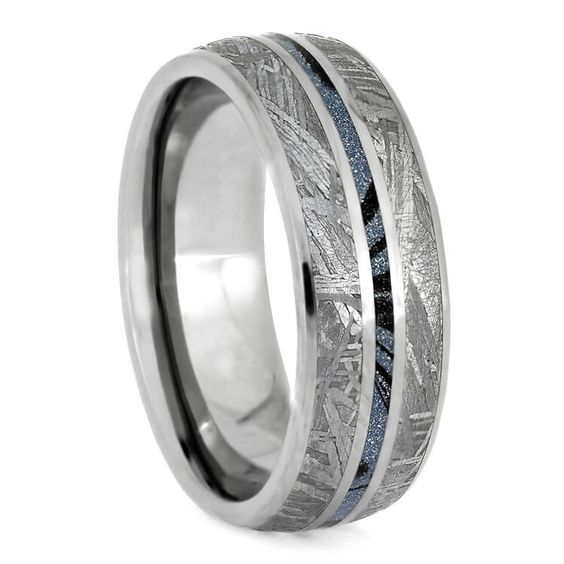
Cobalt wedding bands
Originally used in medical and aerospace industries, cobalt is now being marketed as a contemporary metal for fine bridal jewellery and with good reason! Being an extremely hard metal, four times as hard as platinum, it is also scratch-resistant. It is also hypoallergenic and due to its chemical properties, it can be easily resized, unlike titanium. It is a naturally white alloy that when made into jewellery, can come in two tarnish-free finishes – black and white.
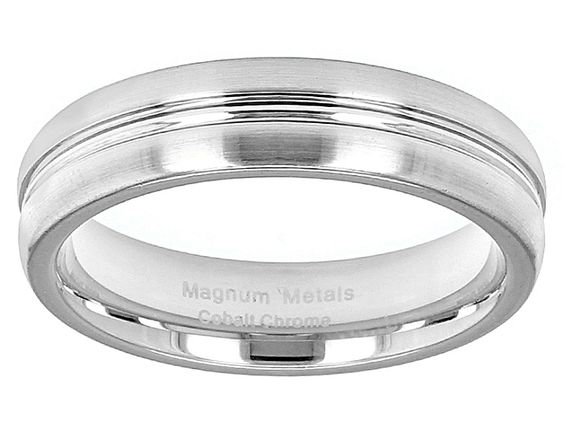
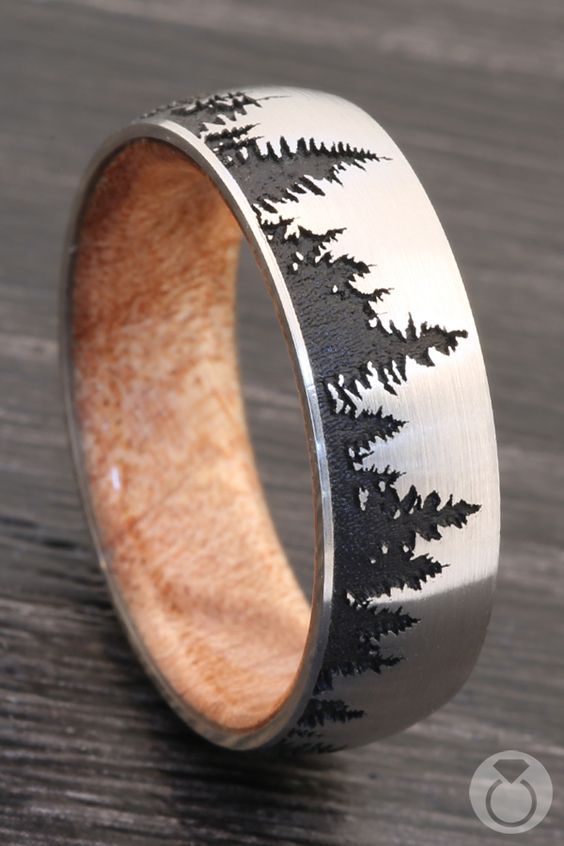
Tungsten wedding bands
Tungsten is an extremely hard and durable metal. In fact, it is 4 times harder than titanium and 10 times as hard as 18k gold! Tungsten wedding bands are especially popular with grooms who work with their hands because of their durability and strength. While the density of this particular metal allows it to be strong, the downside is that it does have a heavy weight. Some grooms may prefer their jewellery to be more solid and substantial but if you do not, there are other options for you. Another thing to note is Tungsten is prone to be brittle and may break easily.
Tungsten’s unique look sets it different from the traditional gold or platinum wedding bands. It is available in white, grey and black, which is ideal for grooms who prefer sleek and contemporary looking jewellery. Do note that Tungsten has properties that do not allow for resizing.
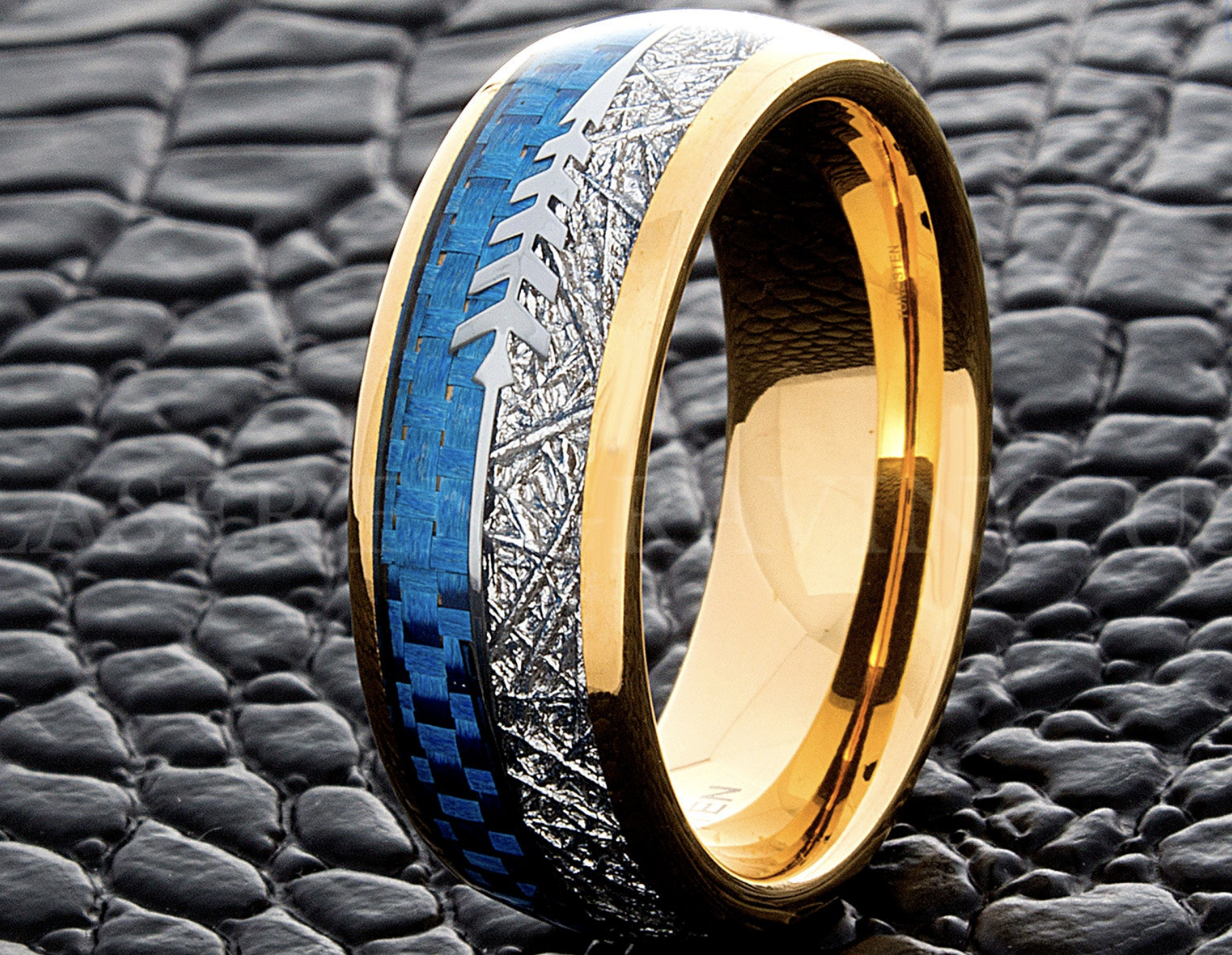
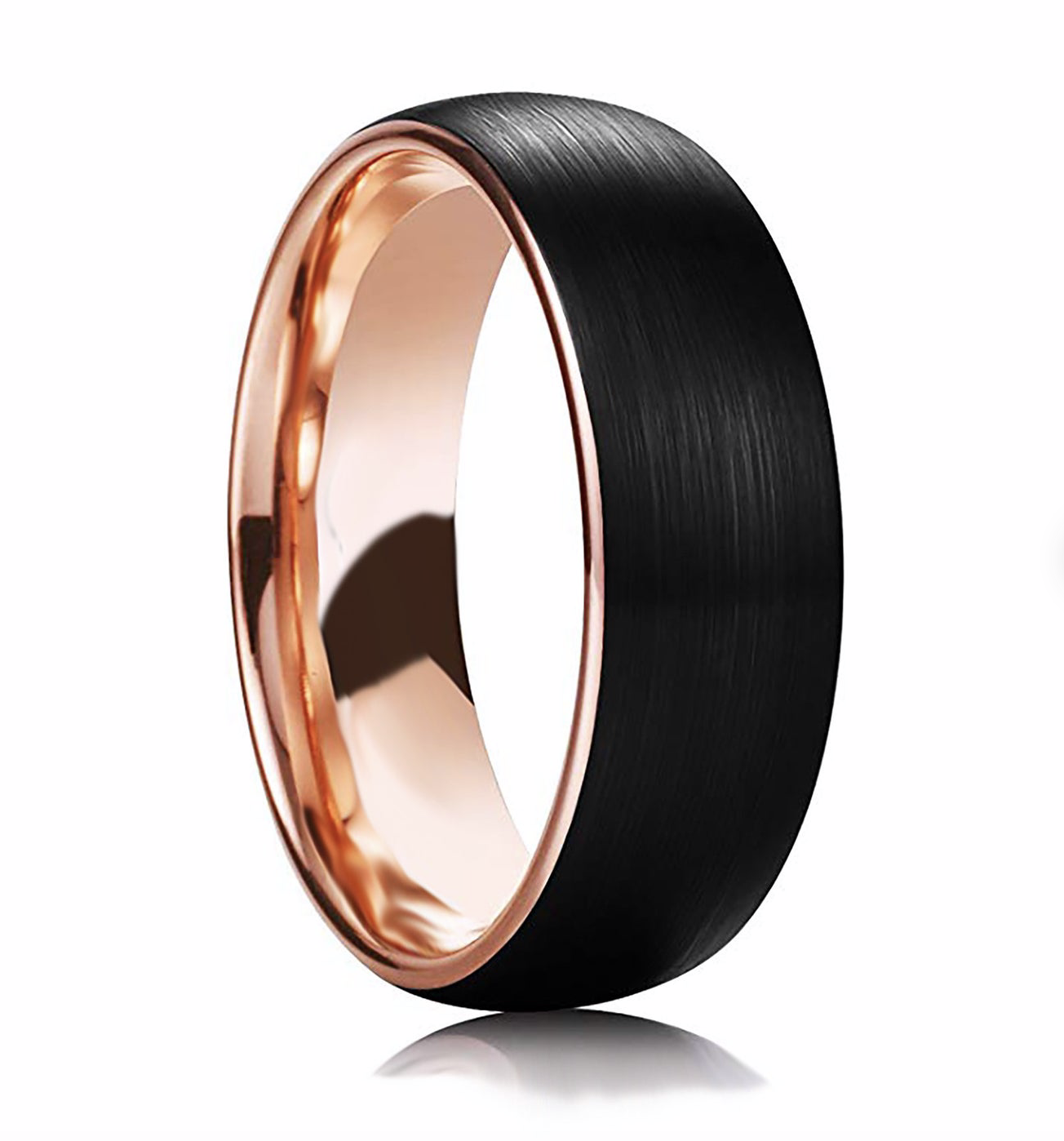
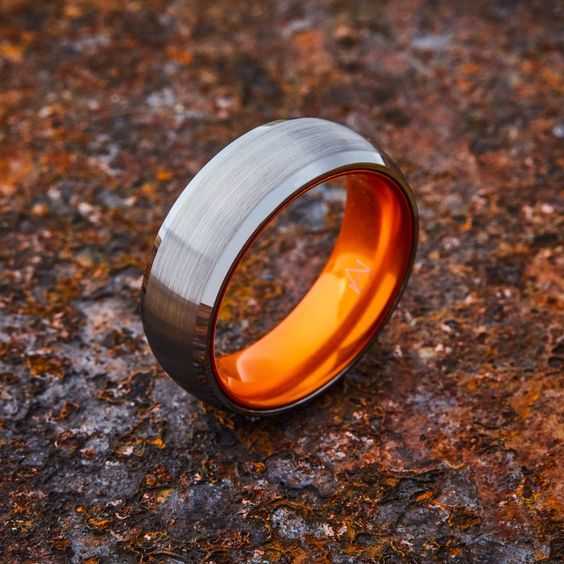
Stainless steel wedding bands
Stainless steel is not just for kitchen-ware anymore! It is increasingly becoming common in many jewellery designs due to its durability, strength and affordability. You do not have to worry about stains on this metal (thus stainless!) and it requires far less maintenance than other metals. All you need to clean your stainless steel jewellery is some diluted dish soap and a soft cloth!
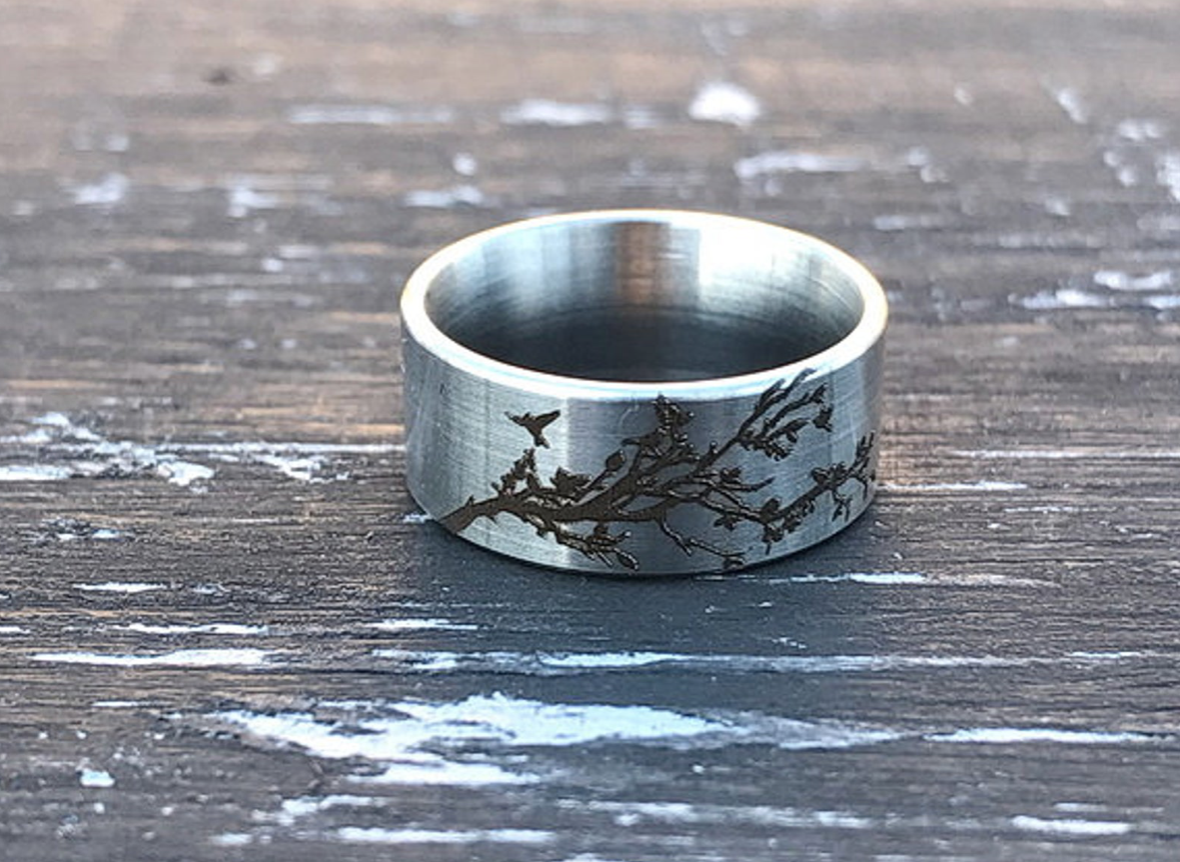
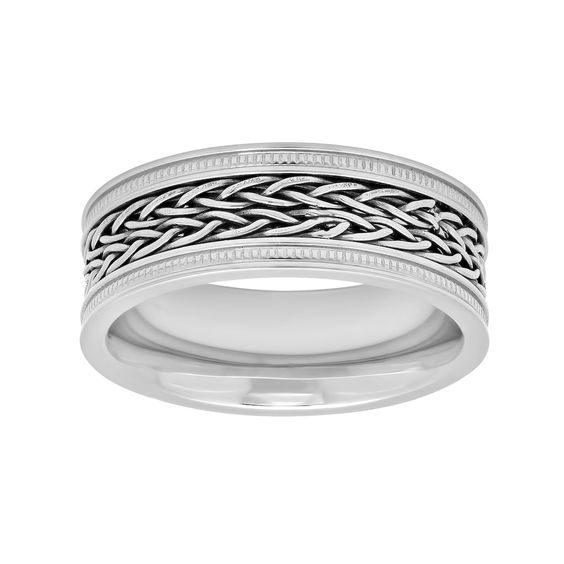
How to care for your jewellery
When you’re not wearing your wedding band, store it in a jewellery pouch or a box with soft lining to prevent scratches. Check with your jeweller on how to care for your jewellery at home, especially if it contains diamonds or other gemstones as they may need special treatment. Generally, you can clean your wedding band in a diluted solution of dish soap and warm water. Use a soft cloth or a toothbrush with very soft bristles. Avoid using a standard toothbrush as the tough bristles may loosen or remove diamonds from your wedding band. Remove your jewellery when you’re doing manual labour or sports to avoid scratching or injury.
